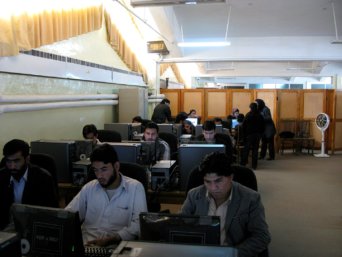- About
- Topics
- Story
- In-Depth
- Picks
- Opinion
- News
- Donate
- Signup for our newsletterOur Editors' Best Picks.Send
Read, Debate: Engage.
| topic: | Humans |
|---|---|
| located: | Afghanistan |
| editor: | Shadi Khan Saif |
A brief study of history tells us that the Islamic Gold Age reached its peak with the establishment of the House of Wisdom in Baghdad, while its downfall began with the Mongol terrorising the city and burning almost all the books at the state-of-the-art learning facility of its time.
Those were the days when scholars from diverse backgrounds had gathered under Muslim rule to seek and share knowledge for the welfare of humanity across the globe.
Now, the propagators of hatred, division and destruction in the form of the so-called Islamic State are framing themselves as heirs of that legacy and representatives of Muslims. Yet their words and deeds are in stark contrast to that of the Abbasid Caliphate – during which many classic works of antiquity that might otherwise have been lost – were translated from Greek, Persian, Indian, Chinese, Egyptian, and Phoenician civilizations into Arabic and Persian, and later translated into Turkish, Hebrew, and Latin.
Needless to say, Afghanistan is nowhere close to reviving the past glory of the Muslim in the fields of sciences and the arts, but it is definitely facing a nerve-racking challenge to preserve its hard-earned liberties and knowledge during the relative peace of the past several years.
Afghanistan's leading public sector university, Kabul University, was terrorised with a devastating IED blast on Friday 19 June, killing eight people. It may sound like a routine incident linked to the raging Taliban-led insurgency in the war-ravaged country. But a more vivid study of events surrounding the attack reveals a much more worrying picture.
This comes days after the Afghanistan premier spy agency, NDS, took into custody a Kabul University lecturer among others on the charges of propagating the pro-IS ideology and recruiting fighters for this terrorist group.
A research paper “Religious Radicalism in the Higher Education of Afghanistan” by the Afghanistan Institute of Strategic Studies had already warned in April against the growing trend of radicalisation in universities; this radicalisation of the youth would be the last thing Afghanistan needs amid growing hopes for a peaceful settlement to the raging conflict.
